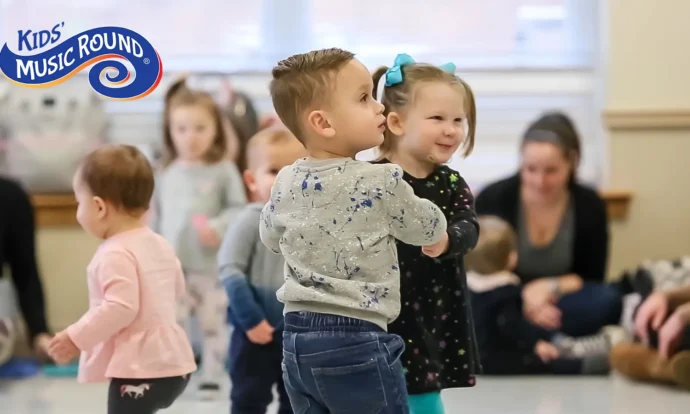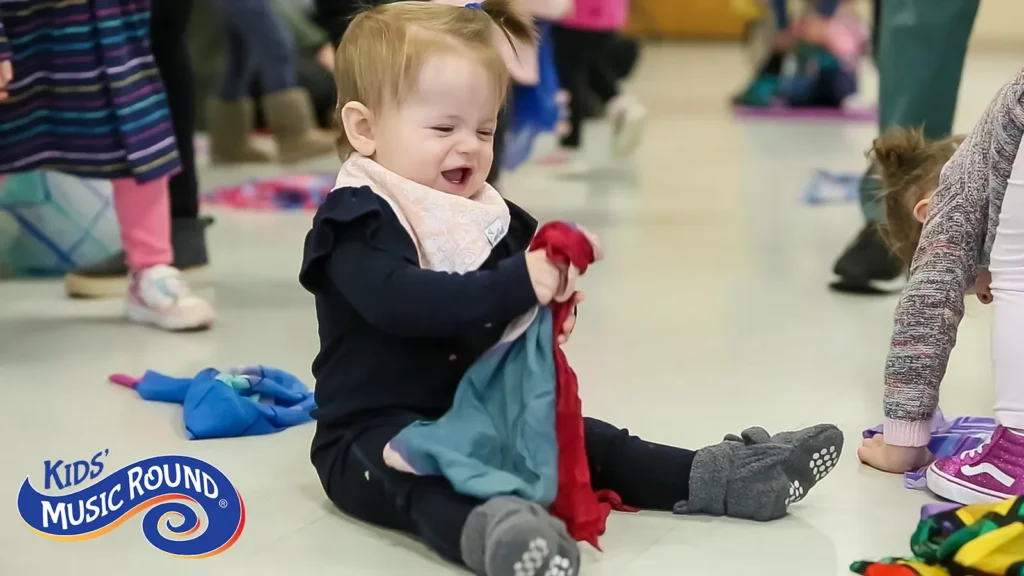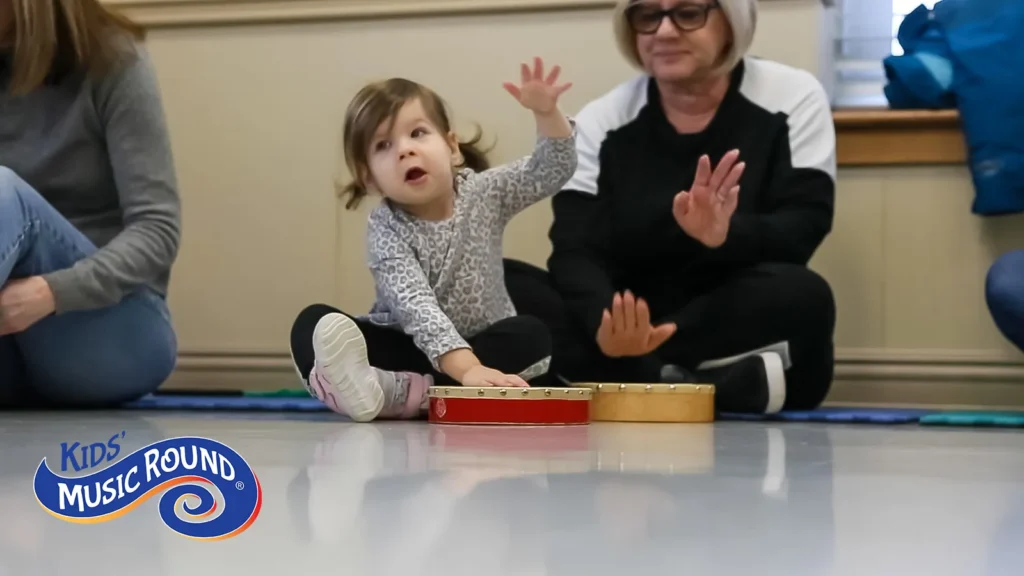The Language of Music
Did you know that the process of music development parallels the process of language development? Language development starts when a child is born.
You enthusiastically speak to your child in full sentences from the moment you lay eyes on her (and sometimes even earlier). Although you do not receive a response, you persist in friendly conversation and sweet babbling sounds. You are exposing your child to the language of her culture.
Children learn language by listening to the adults around them and experimenting with their own vocalizations. A baby’s ear becomes attuned to environmental rhythms and speech patterns, enabling them to effortlessly learn the syntax of a language.
Think about how long we are engaged in the art of conversation before we are taught to label the parts of speech. Labeling a noun, verb, or pronoun does not happen until the elementary school years. By the time a child is expected to identify an adjective, he will have been speaking for approximately 7 years. Before the identification process begins, a child will have the opportunity to understand and competently use the language of his environment. So why would we expect children to sing a song or play an instrument without the proper exposure and music play?
Like language, music development begins with a babble stage, a period of experimenting with all the possible combinations of vocal sounds. The chirps, squeals, and even raspberries a child creates are all part of this necessary stage.
With repeated experience and exposure to music, children learn the language of music. The opportunity to joyfully explore and play with music at an early age helps children develop basic music competence—the ability to keep accurate beat and sing in tune. This is extremely important because it sets the stage for the rest of a child’s musical endeavors.
Older students who have not yet achieved basic music competence are still in the music babble stage. To progress, they need the same playful, interactive music experiences offered in our Kids’ MusicRound and Classroom Jamboree classes with age-appropriate music.
Do we expect all our children to become music virtuosos? I don’t think so. However, we can expect all our children to become competent in carrying a tune and keeping a beat if we consistently expose them to different tonalities, meters, and styles of music during early childhood. This early exposure, coupled with encouragement to sing and move to music daily, will give a child the necessary skills to successfully participate in music for pleasure in later formal music instruction or professional musical pursuits.
To learn more about how children learn music in early childhood, contact Barbara Lysenko for information on our online teacher workshops.




